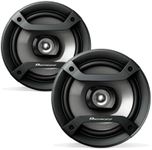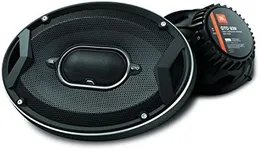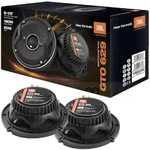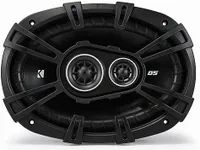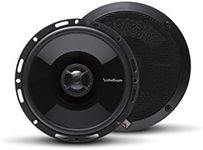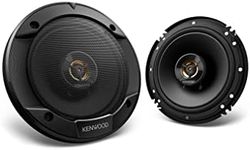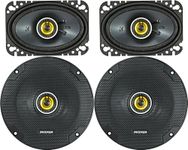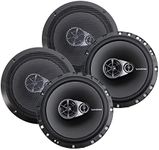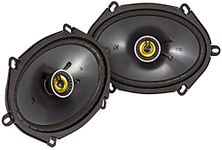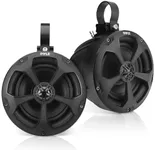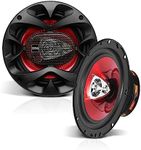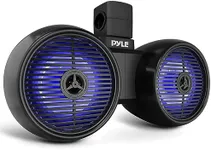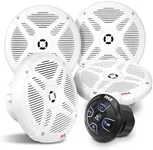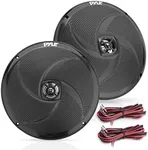Buying Guide for the Best Car Audio Speakers
Choosing the right car audio speakers can significantly enhance your driving experience by providing high-quality sound. To make an informed decision, it's important to understand the key specifications and how they relate to your needs. Here are the essential specs to consider when selecting car audio speakers.Speaker TypeCar audio speakers come in two main types: component speakers and coaxial (full-range) speakers. Component speakers consist of separate woofers, tweeters, and crossovers, offering superior sound quality and customization options. Coaxial speakers combine all elements into one unit, making them easier to install and generally more affordable. If you prioritize sound quality and are willing to invest time in installation, component speakers are a great choice. For a simpler setup, coaxial speakers are ideal.
Power HandlingPower handling refers to the amount of power a speaker can handle, measured in watts. It includes RMS (continuous power) and peak power ratings. RMS is more important as it indicates the speaker's ability to handle power over time. Higher RMS ratings mean the speaker can handle more power and produce louder sound without distortion. If you have a powerful amplifier, choose speakers with higher RMS ratings. For factory-installed systems, lower RMS ratings are sufficient.
SensitivitySensitivity measures how effectively a speaker converts power into sound, expressed in decibels (dB). Higher sensitivity ratings mean the speaker can produce louder sound with less power. If you have a low-powered car stereo, look for speakers with high sensitivity (above 90 dB). For high-powered systems, sensitivity is less critical, but higher ratings can still improve efficiency.
Frequency ResponseFrequency response indicates the range of sounds a speaker can reproduce, measured in Hertz (Hz). A wider frequency range means the speaker can produce both deep bass and high treble sounds. Typical ranges are 20 Hz to 20,000 Hz. If you enjoy a variety of music genres, choose speakers with a broad frequency response to ensure all elements of the music are accurately reproduced.
ImpedanceImpedance is the resistance a speaker offers to the electrical current from the amplifier, measured in ohms. Common values are 2, 4, and 8 ohms. Lower impedance speakers draw more power from the amplifier, potentially producing louder sound. Ensure your amplifier can handle the impedance of the speakers you choose. For most car audio systems, 4-ohm speakers are a safe and effective choice.
Build QualityBuild quality affects the durability and sound quality of car audio speakers. Look for materials like rubber surrounds, which are more durable than foam, and cones made from polypropylene or other high-quality materials. Better build quality ensures the speakers will last longer and perform better. If you drive frequently or in harsh conditions, prioritize speakers with robust build quality.
